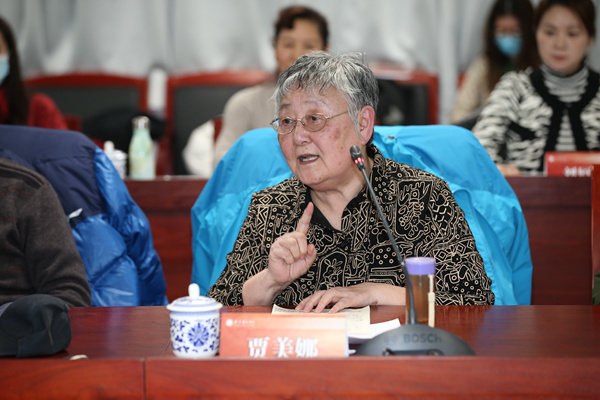

"I was very happy and proud about their progress but I've never told them," she says.
To become a professional dancer, passion is important, Jia adds. However, it also needs talent. Jia once told Yao that her body was not flexible enough and suggested that she develop other skills, like singing. She also invited a teacher from the Central Academy of Drama to train Yao.
"The school is like soil, providing students with the nutrition to grow. We tried to help them discover their goal for a lifelong career and gain confidence," Jia says.
Sun Qingsheng was assigned to take care of the students at the Beijing Dance Academy in 1993. In his early 20s, Sun was like a big brother to those students.
"There was no smartphone like today, and those children just concentrated on dancing. Over four years, they worked with their teachers to create new dance pieces. In 1997, I visited some students when I traveled to Fuzhou and I was very happy to see that they took those dance pieces with them and performed them for the local audiences in Fuzhou," recalls Sun, who now is the vice-president of the National Academy of Chinese Theater Arts.
According to Ba Tu, the Party secretary of Beijing Dance Academy, the warm feedback from Fuzhou Song and Dance Troupe motivated the school to enroll more students from around the country and establish similar classes, to benefit art education in more cities across China and to better prepare young dancers for their jobs after graduation.
Among them, students from the Xinjiang Uygur autonomous region, Tibet autonomous region, Xiamen in Fujian, and Guizhou province, were enrolled to study at Beijing Dance Academy, who later found work with performing arts troupes in their hometowns after graduation.